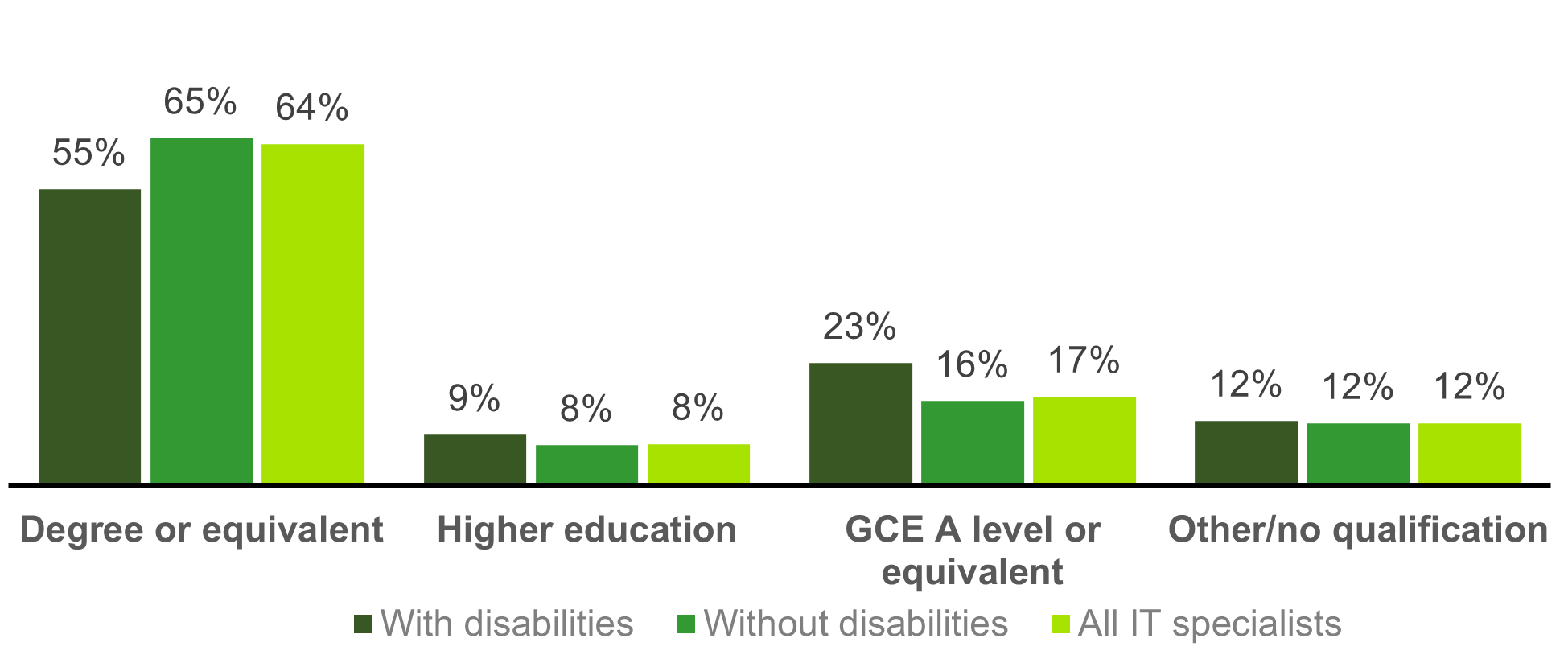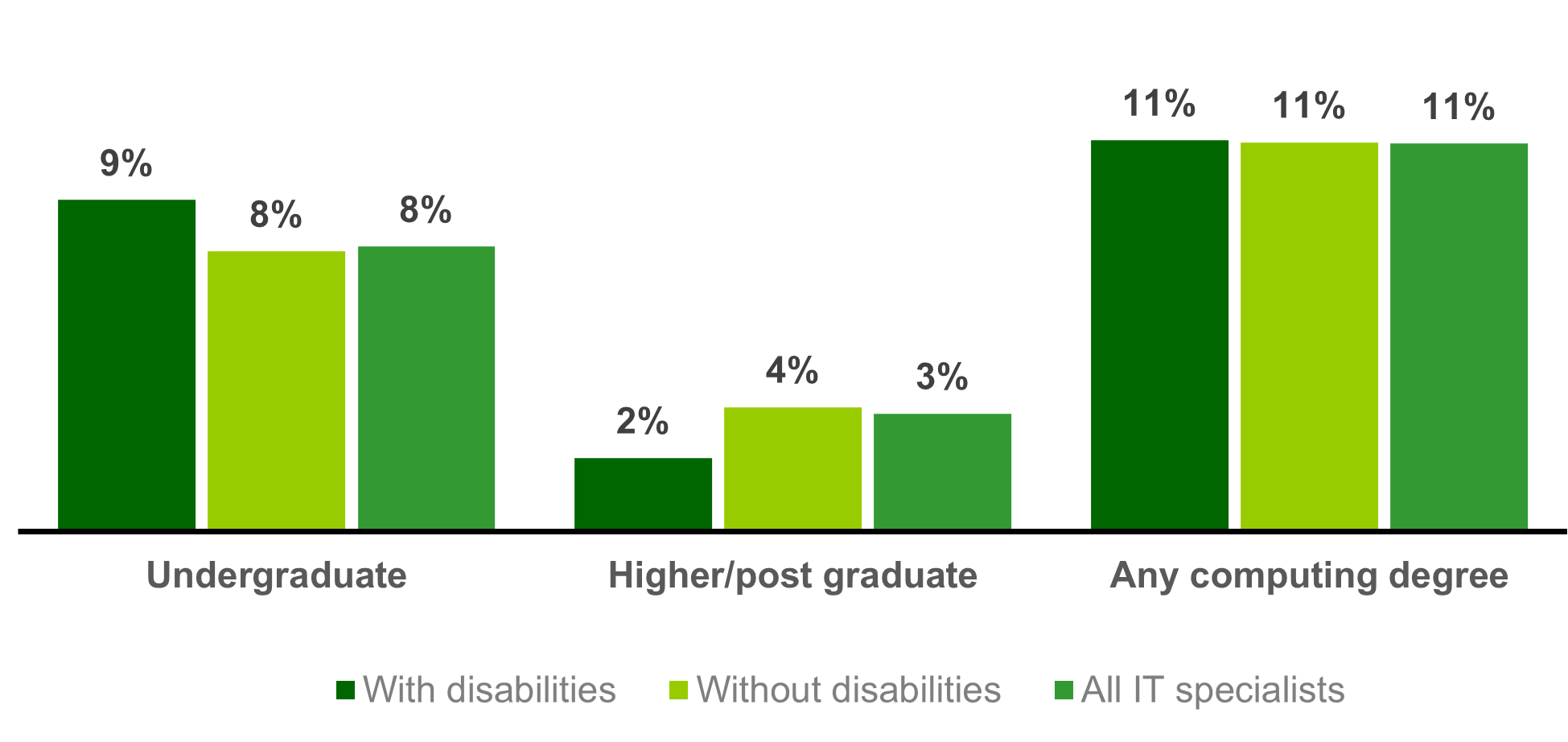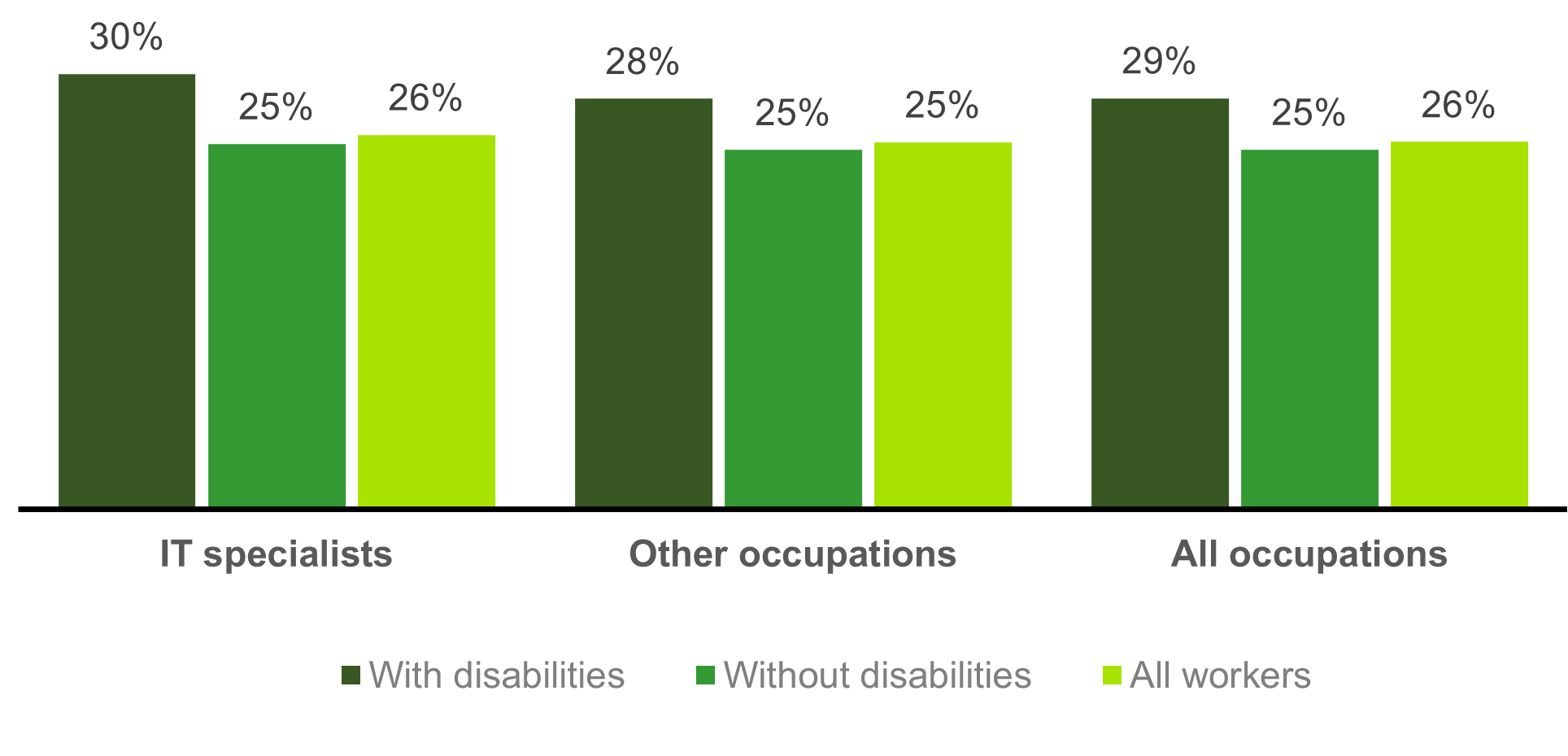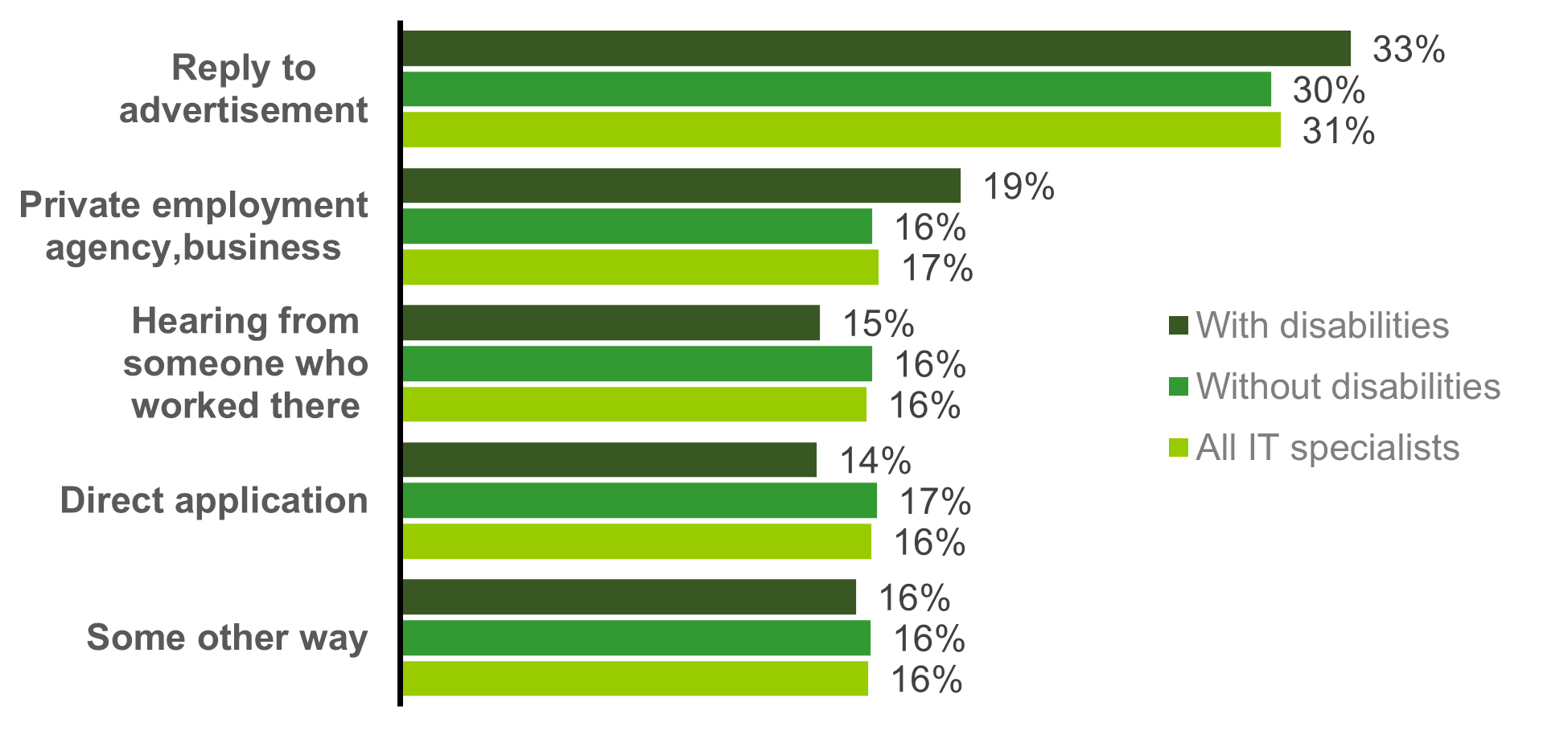Skills
Qualifications held
IT specialists are more highly qualified than other UK workers, and in 2021, more than two thirds (72%) were thought to hold some form of higher-level qualification, compared with one half of workers as a whole (50%).
Overall, disabled IT specialists were also found to be more highly qualified than other workers with disabilities and in 2021 approximately 65% of IT specialists with disabilities held a degree / HE level qualification compared 44% of workers with disabilities in other occupations.
Level of educational attainment amongst IT specialists (2021)

Source: Analysis of ONS Quarterly Labour Force Survey by BCS
IT specialists with disabilities were equally likely to hold a degree in an IT-related discipline as those without disabilities working in such occupations. In 2021, approximately 11% of IT specialists with / without disabilities held either a higher or undergraduate degree in a computing related subject.
IT specialists holding computing degrees (2021)

Source: Analysis of ONS Quarterly Labour Force Survey by BCS
Skills development
Despite the arguably high skill / knowledge requirements associated with their work, IT specialists as a whole in the UK do not appear any more likely than other workers to receive job-related education/training and throughout 2021, on average 26% of IT specialists stated that they had received some form of job-related education/training in the previous 13 weeks (i.e. as was the case for workers as a whole).
For disabled IT specialists however the proportion receiving education / training was notably higher (30%) – both when compared with disabled workers in other occupations (296%) and with other IT specialists without disabilities (25%).
Job-related education / training in the past 13 weeks (2021)

Source: Analysis of ONS Quarterly Labour Force Survey by BCS
Skills sourcing
As with other UK employees, the most common identifiable means of IT specialists[4] securing a job (where stated) is ‘replying to an advertisement’ with 33% of those that had been with their employer for less than one year over the 2017-21 period stating they had secured work in this manner.
The next most common way of IT specialists securing a job was via a private recruitment agency, and the likelihood of finding work by both these, and other means, appeared to be much the same for IT specialists with / without disabilities.
Means of finding work amongst IT specialists (2017-2021)

Source: Analysis of ONS Quarterly Labour Force Survey by BCS
[4] Employees / people on government schemes who have been with their current employer for less than one year/12 months prior to being interviewed for the LFS.













